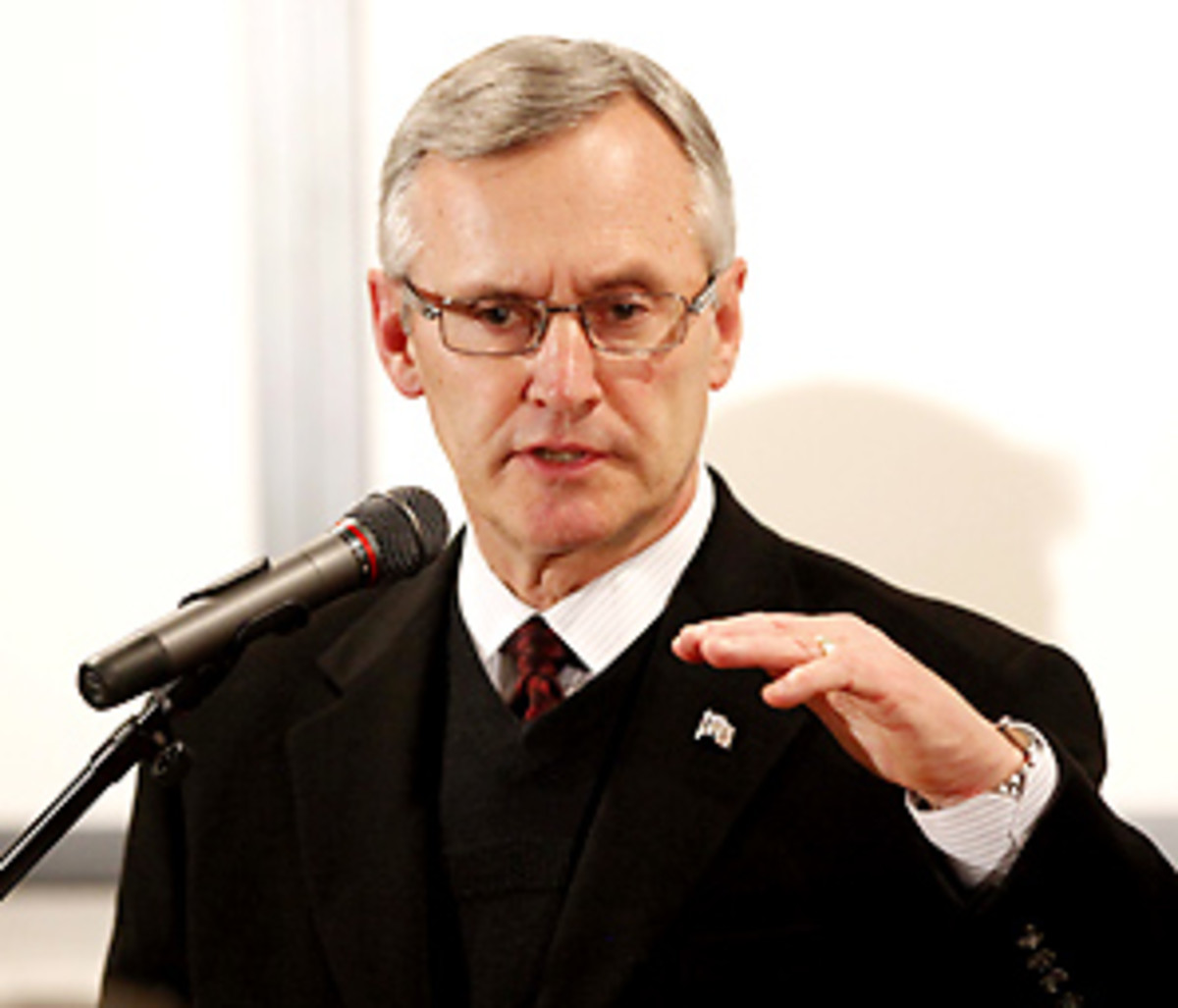Don't buy Tressel's, Ohio State's defense for coach's violation
Let's be honest: No one but the most scarlet-and-gray blinded diehard could possibly buy the explanation being given by the coach and his employer for an inexplicable lack of judgment that will cost Tressel at least two games and $250,000. It's thinner than the Buckeyes' depth chart for their first five games next season.
According to Ohio State's letter to the NCAA self-reporting Tressel's violation, an attorney twice e-mailed the coach last April warning him that two of his players had sold memorabilia to the owner of a local tattoo parlor involved in a criminal investigation. Tressel told the e-mailer he'd look into it (or more specifically, "I will keep pounding these kids hoping they grow up..."), and in fact began a correspondence in which the attorney shared more information.
And then, Tressel did ... nothing. Well, at least nothing that would have put his players' eligibility at risk. Concerned more by the possibility that his players might be mixed up in a federal drug investigation, he admitted, "I probably didn't give quite as much thought to the NCAA end of things as I read [the initial e-mail]."
One can certainly understand the concern for his players' safety. But no rational person can possibly accept the fact that the "NCAA end of things" failed to dawn on Tressel for another ... oh, eight months. Or how he could in good conscience sign an NCAA Certificate of Compliance form three months later asserting "he has reported any knowledge of possible violations to the institution."
But most troubling of all is that when law enforcement officials notified Ohio State in December that the memorabilia was found at the tattoo parlor, Tressel still declined to inform his employer that someone e-mailed him about it eight months earlier. In fact, Tressel didn't fess up until the university uncovered the e-mails in mid-January.
When confronted, Tressel claimed he was only trying to protect the confidentiality of the attorney. Last we checked, attorney-client privilege usually works in the other direction, not to mention compliance departments happily welcome anonymous tips. He also worried about infringing on the criminal investigation. That part's more plausible, up until the point where the investigation was broadcast to the world once Ohio State suspended the five players.
Tressel is an exceptional football coach. He does highly admirable work in his community. He's inspired countless people.
But he broke a rule. End of story. The "extenuating circumstances" Ohio State is trotting out in his defense are simply not believable. But you wouldn't know it by the way athletic director Gene Smith and president Gordon Gee spoke Tuesday night.
Tressel's bosses claimed that this major violation is merely a minor blemish by an otherwise exemplary human being. "Jim Tressel is our football coach and we trust him," said Smith. "This case does not warrant [his firing]." Asked whether he'd considered dismissing Tressel, Gee, OSU's notorious bowtie-clad cheerleader, offered this sarcastic gem: "No. Are you kidding me? I just hope the coach doesn't dismiss me."
Tressel's infraction may or may not merit termination, but it's certainly more serious than Smith and Gee would have you believe -- particularly in the current NCAA environment. Tennessee basketball coach Bruce Pearl was suspended eight games, docked significant salary and may still face more punishment for not being truthful to investigators. Former Oklahoma State receiver Dez Bryant lost nearly an entire season for lying to the NCAA. Tressel withheld important information for nearly nine months, yet if the school has its way, he will be back in time to face Miami on Sept. 17.
Here, it's important to note semantics. At no point in the school's self-disclosure or during Tuesday's press conference did anyone explicitly say Tressel lied to the NCAA, like Pearl and Bryant. The charge the school reported was unethical conduct. But this sure looks, smells and feels the same.
Tressel's case will now work its way through the NCAA disciplinary assembly line, where eventually, the Committee on Infractions could decide whether to add to the school's self-imposed penalties. Given the circumstances, it's going to face significant pressure to do that. But Tressel has one of the nation's most powerful athletic departments and most influential commissioners (the Big Ten's Jim Delany) in his corner. The school has already begun posturing to minimize the damages.
At Tuesday's press conference, Smith held up his institution as a model for collaboration. Notice we uncovered and reported this violation ourselves, just like we did in December, he said. Notice how quickly we sought out to the NCAA's assistance, unlike some schools (cough, cough, Auburn) that sit on potential violations for months, just like we did in December. Look how quickly we worked to resolve this, just like we did in December.
But lest we forget, the sanctions in December were egg on the NCAA's face. Rarely has the NCAA caught more flack for a decision than it did for allowing Terrelle Pryor and his cohorts to play in the Sugar Bowl. In fact, the NCAA gave off the perception of having brokered some sort of plea-bargain with the Buckeyes. It will certainly want to avoid that appearance again, which could ultimately mean a harsher penalty for Tressel.
But as Gee so vividly reminded us, Tressel is one powerful figure. Will the Committee on Infractions be so bold as to force Ohio State to terminate him? Probably not.
All you can do is keep pounding these coaches, hoping they grow up.





